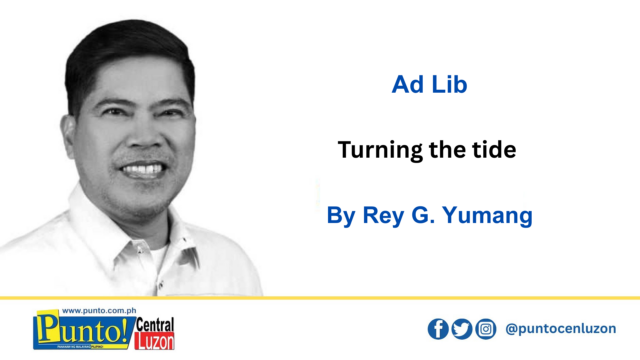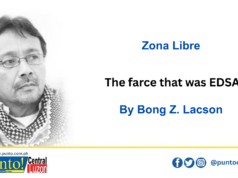THIS IS no premature celebration. As I remain extra cautious, two recent developments are giving me hope that sooner or later, we might just see the end of anomalous flood control projects and the start of political governance that thrives on transparency and accountability.
First, President Marcos Jr.’s creation of the Independent Commission for Infrastructure (ICI) via Executive Order No. 94 signed Sept. 11, 2025. It is comprised of credible figures: retired Supreme Court Justice Andres B. Reyes Jr. as chair, former DPWH Secretary Rogelio Singson, SGV and Co. country managing partner Rossana A. Fajardo, with Baguio Mayor Benjamin Magalong as special adviser.
The ICI’s mandate is no easy feat – to investigate anomalies in flood‑control and related infrastructure projects over the past 10 years, gather documents and summon witnesses, recommend criminal, civil, and administrative cases, and even freeze the assets of key players involved in corrupt projects.
Second, the filing of House Bill 3661 in August by House Majority Leader Ferdinand Alexander “Sandro” Marco. The bill seeks to bar public officials’ relatives up to the fourth civil degree of consanguinity or affinity from securing government contracts. It defines public officials broadly – heads of procuring entities, policy‑makers, managers, even those in uniformed service – and would cover infrastructure contracts, supplies, PPPs, etc.
So why do I consider these two crucial?
The ICI’s power to examine past contracts over a decade provides a rare institutional platform to expose who benefitted, how contracts were awarded, whether procurement rules were followed, and whether political connections enabled favoritism or kickbacks. With subpoena and document powers, the commission can outline the not-so intricate web that connects elected officials, their families, contractors, and erring DPWH officials.
Meanwhile, HB 3661 directly targets one structural source of conflicted interest: when public officials or their kin are contractors or suppliers themselves, the inherent flaw is quite obvious. There is both an outright motivation to pass weak legislation or to avoid oversight, and a high risk of misuse. By disallowing such contracts, the bill once enacted into a law would reduce opportunities for “inside” actors to manipulate bidding, delay accountability, or curry favor in hiring contractors who have political connections.
Combined, these two have the potential to shift governance norms: the ICI rooting out past wrongs, and the Bill helping prevent future abuses. If the ICI’s findings are taken up by prosecutorial agencies such as the Ombudsman, Department of Justice, etc. and if the Bill passes and is enforced, then transparency (through public reporting, asset disclosure) and accountability (sanctions, removal of contractors, permanent bans, etc.) could become more than rhetorical promises.
Yet both face hurdles: overcoming political resistance especially from those who might be implicated, ensuring the ICI is truly independent and adequately resourced, making sure the Bill doesn’t get sanitized in committee hearings or through exemptions.
The ICI and HB 3661 are not magic bullets, but they are critical tools. The huge sums allocated (₱545B), the concentration of contracts (15 contractors getting 20%), and the recurring testimony of legislators and DPWH officials being involved in kickbacks (25% alleged in some cases) plant the important question: when will structural reform take root?
These two measures could mark a turning point. If carried out well, they may finally turn commitment into consequences – and the public funds into actual and lasting public service.
(Sources: bagongpilipinasmediahub.ph, gmanetwork.com, Philippine Information Agency, philstar.com, The Filipino Times)





